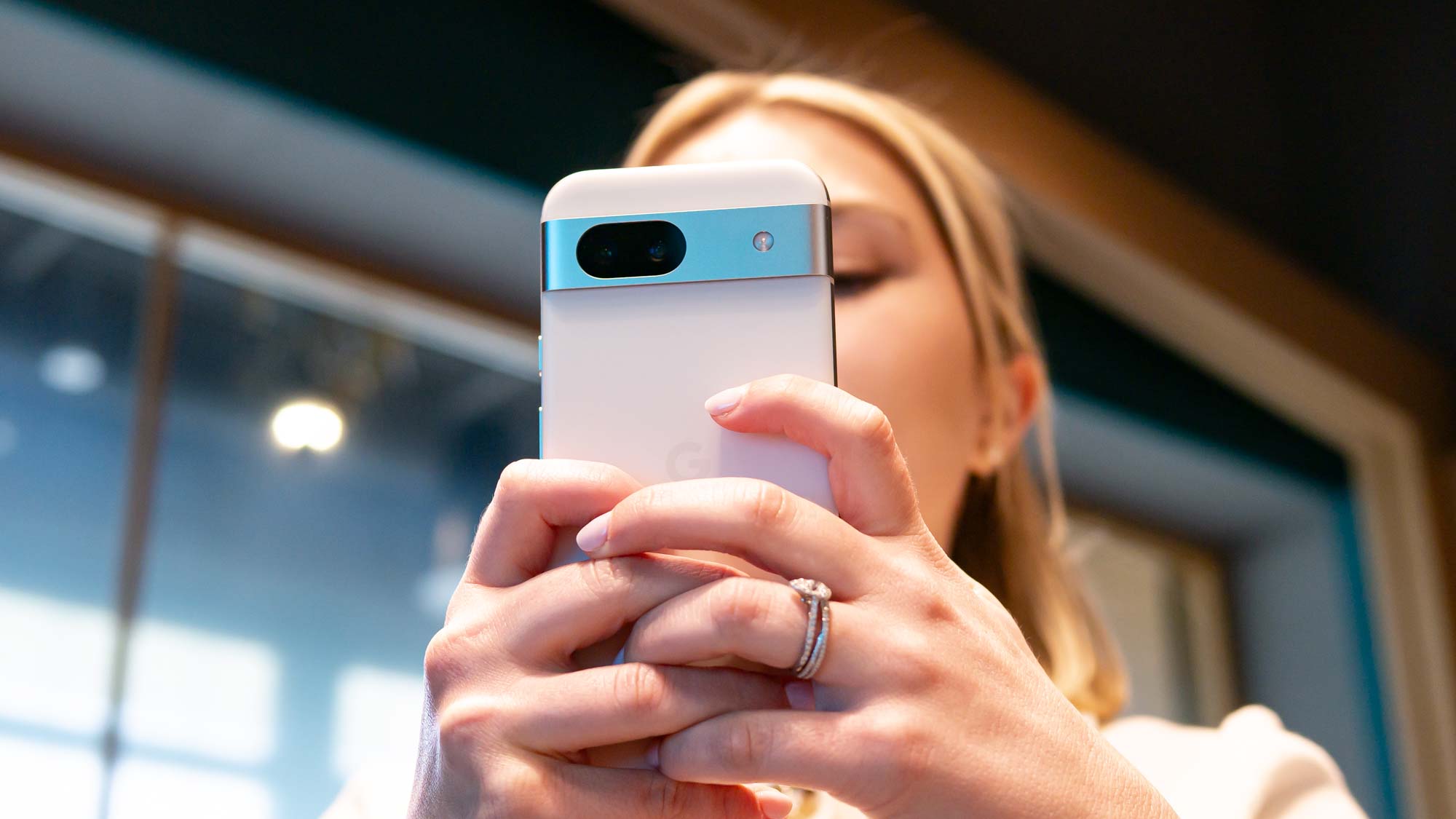
Google's Pixel 8a, the latest version of its midrange phone, is now here and consumers will find comfort in just how familiar the phone feels. A lot of the features from last fall's Pixel 8 flagships are on display here, including the AI capabilities powered by the Tensor G3 system-on-chip. And the price of the Pixel 8a remains unchanged from its predecessor — at least in the U.S.
Like previous Pixel A series phones, the Pixel 8a is a less expensive version of the Google flagship that preceded it, which means sacrificing some features in the name of a lower price tag. But don't confuse this midrange model for a bargain basement handset. Google has boosted the refresh rate on the Pixel 8a's 6.1-inch display, and it's expanding software and security support for its midrange phone to match what it provides the Pixel 8 and Pixel 8 Pro.
You can read about our opinion of the device in our Google Pixel 8a review or see what's changed from the previous model in our Pixel 8a vs. Pixel 7a comparison. But here's a rundown of what to expect from the Google Pixel 8a once you get Google's new phone in your hands.
However, while the Pixel 8a is a fantastic piece it will struggle to compete with the recently released Pixel 9 and Pixel 9 Pro. However, the Pixel 8a still holds a place for those looking for a fair bit of power, without breaking the bank.
Google Pixel 8a: Specs
Google Pixel 8a: Price and availability
In the U.S., the Pixel 8a costs $499 — exactly what Google charged for last year's Pixel 7a. That price covers the 128GB version of the phone, with Google planning a 256GB model as well. That version costs $559.
U.K. phone buyers aren't as lucky as their U.S. counterparts, as the price of the Pixel 8a has gone up. The phone costs £499, a £50 hike over the Pixel 7a's price.
In Australia, the Pixel 8a isn't quite as budget-friendly as it was previous, with the new model starting at AU$849 for the 128GB model, which is AU$100 more expensive than the Pixel 7a was at launch. Meanwhile, the 256GB variant has its price set at AU$949.
Google Pixel 8a: Design
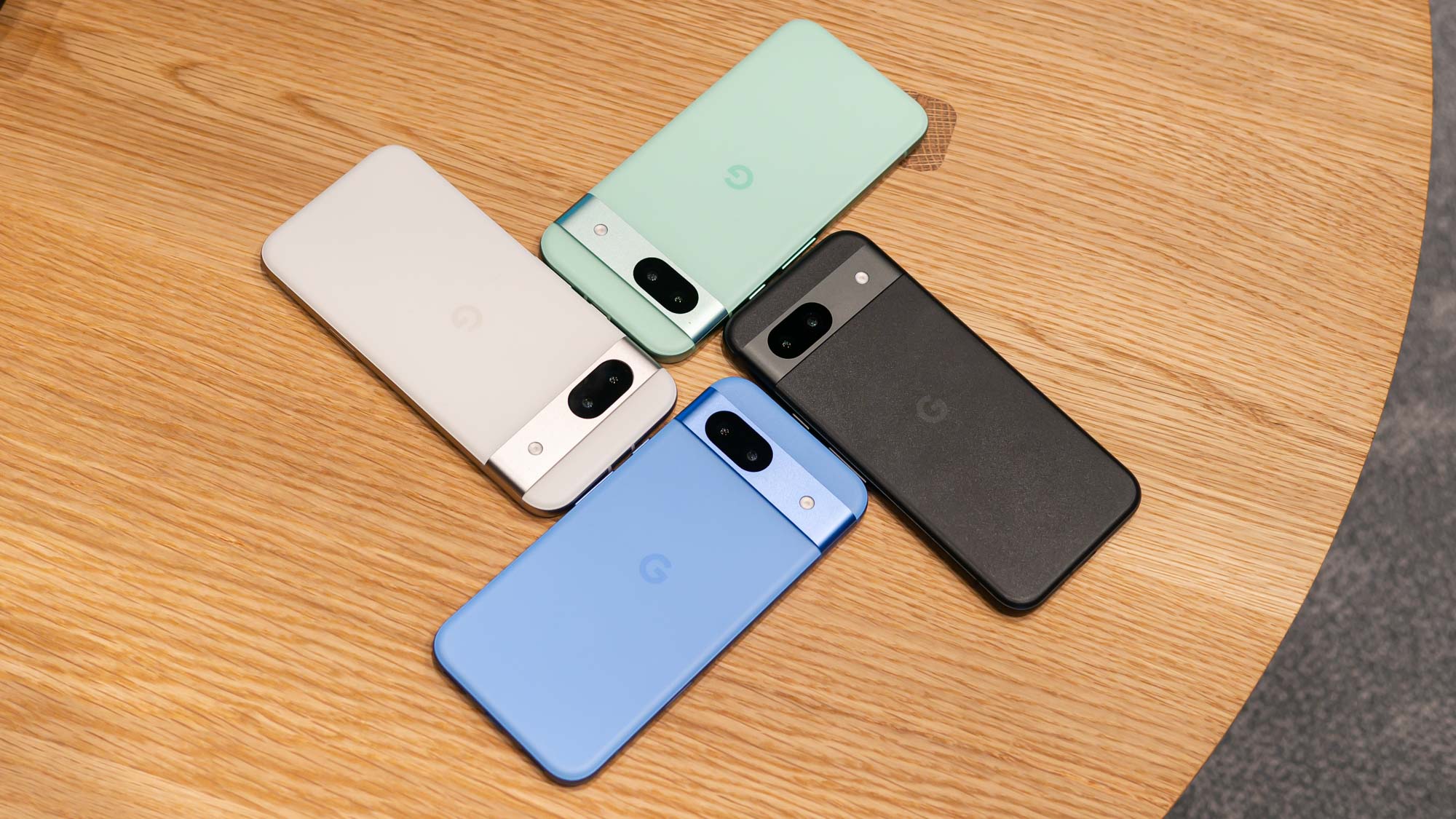
If you're familiar with the look of the Pixel 8, you've got a pretty good idea of the Pixel 8a's design. Like its flagship sibling, the 8a features a camera bar stretching across the back of the phone which gives Google handsets there distinctive look.
That said, you will find more rounded corners on the Pixel 8a compared to the rest of the Pixel 8 lineup. There's also a matte back and aluminum frame on the Pixel 8a, and a wider bezel on the bottom of the phone's display than what you might otherwise see on the flagship devices.
The Pixel 8a offers IP67 water resistance, meaning you can drop it in up to 3 feet of water without any cause for panic. The phone uses more recycled materials than it has in the past, with aluminum, glass and plastic all making use of previously used components.
In terms of colors, you've got a choice of obsidian, porcelain, bay, and aloe — or black, white, blue and green to strip away the marketing verbiage. These are essentially the same colors Google offers for the Pixel 8 Pro.
Google Pixel 8a: Display
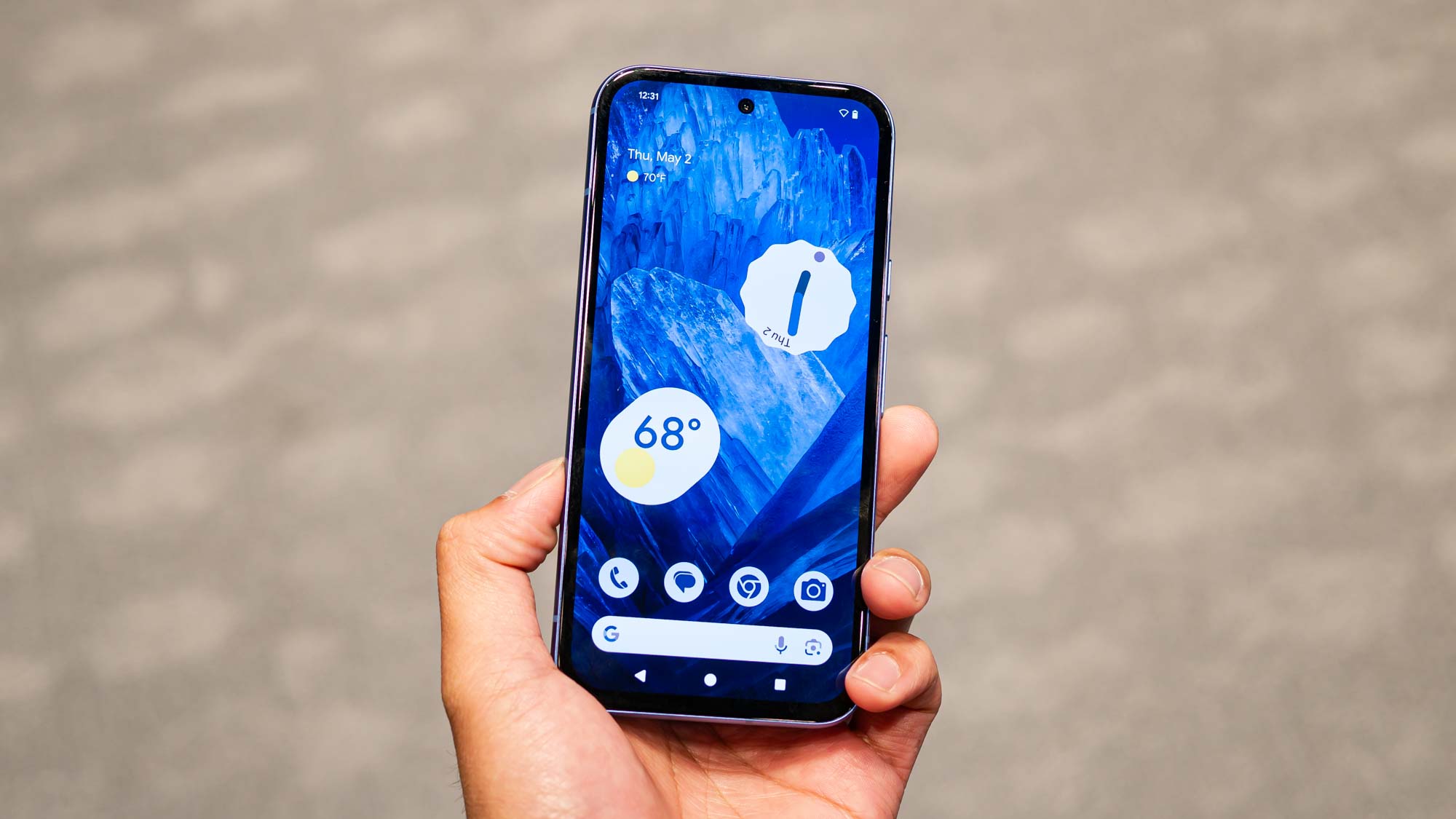
On the surface, the Pixel 8a's screen looks unchanged from what the Pixel 7a offers. It's a 6.1-inch panel that's not quite as as big as the Pixel 8's 6.2-inch display. However, the Pixel 8a share more in common with the Pixel 8 than you might think in terms of its screen, in that the midrange phone now features the Actua display Google uses on its flagships.
In terms of practical benefits, that gives the Pixel 8a a maximum brightness of 2,000 nits, matching the rating for the Pixel 8. The Pixel 7a, in contrast, topped out at 1,000 nits, so definitely expect a brighter screen on the new model.
The refresh rate of the Pixel 8a is faster, too, as it can ramp up to 120Hz when the on-screen activity merits it. Again, this matches what Google's flagships are capable of, while marking a big step up from the 90Hz refresh rate of the Pixel 7a.
Google Pixel 8a: Cameras
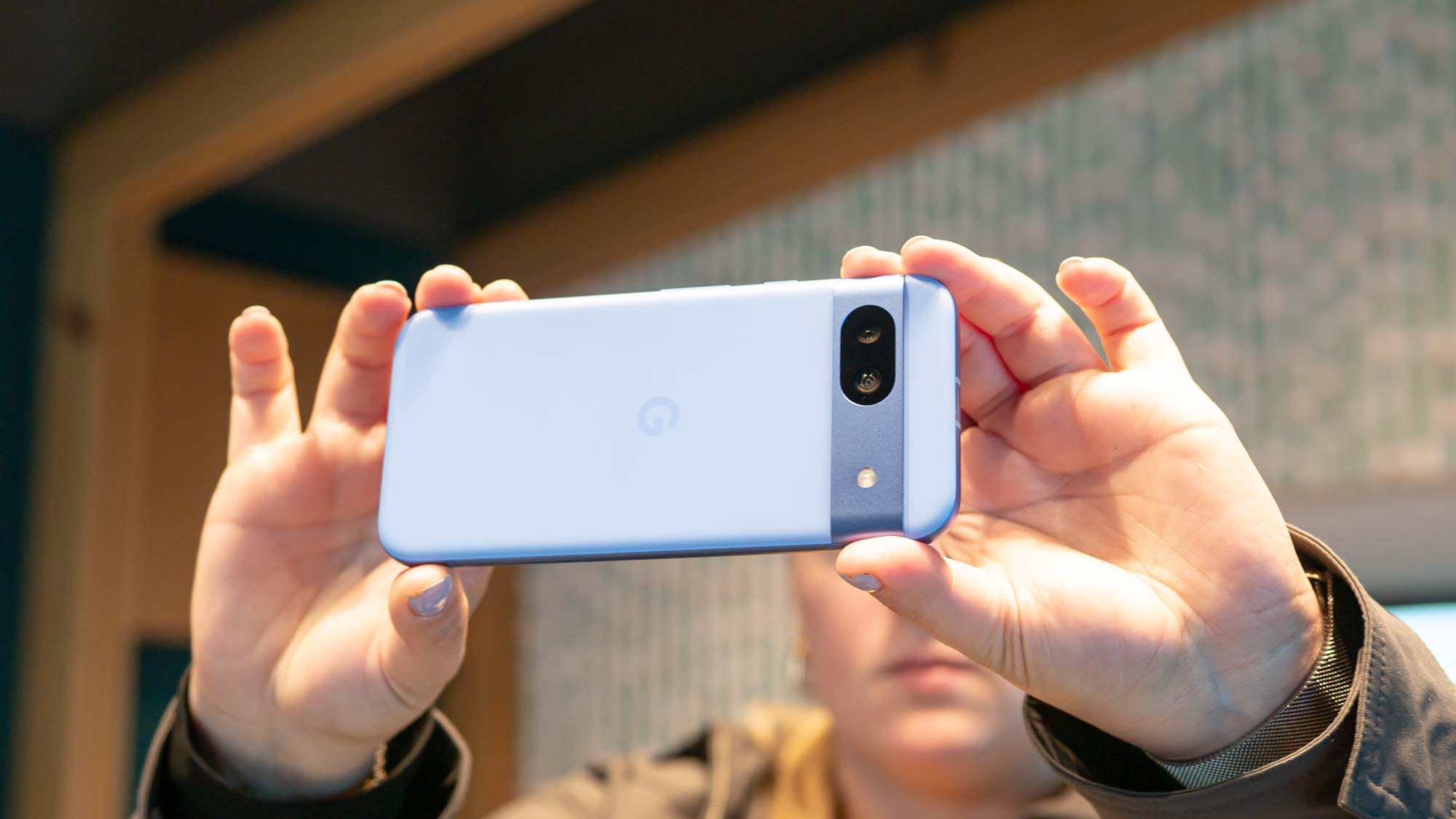
The cameras on Google phones always command their share of attention, given how Pixels tend to populate our best camera phone rankings. (That includes the Pixel 7a, our favorite camera phone under $500.) The Pixel 8a figures to be a strong performer in this regard, too, but there aren't many major changes from the 7a in terms of camera hardware.
You'll find the same 64MP main camera sensor on the Pixel 8a as you did on the Pixel 7a, and the 13MP ultrawide camera is unchanged, too. My colleague John Velasco notes that the 13MP front camera on the Pixel 8a has a wider field of view — 96.5 degrees compared to 95 degrees on the Pixel 7a.
Because of the Tensor G3 chipset — more on that in just a minute — the Pixel 8a adopts the same photo-editing capabilities introduced with the Pixel 8. That includes Best Take where you can swap in different faces on group shots to ensure that everyone's looking at the camera as well as Magic Editor for easily resizing and retouching photos. Audio Magic Eraser is supported, too, if you want to clean up the sound on your captured video footage.
We've put the Pixel 8a's camera to the test against some of the best camera phones around, so here are how it handled against them:
- Pixel 8a vs. iPhone SE camera shootout
- Pixel 8a vs. Pixel 7a camera shootout
- Pixel 8a vs. Pixel 8 camera shootout
- Pixel 8a vs. Nothing Phone 2a camera shootout
- Pixel 8a vs. Pixel 6 Pro camera shootout
Google Pixel 8a: Tensor processor and AI features
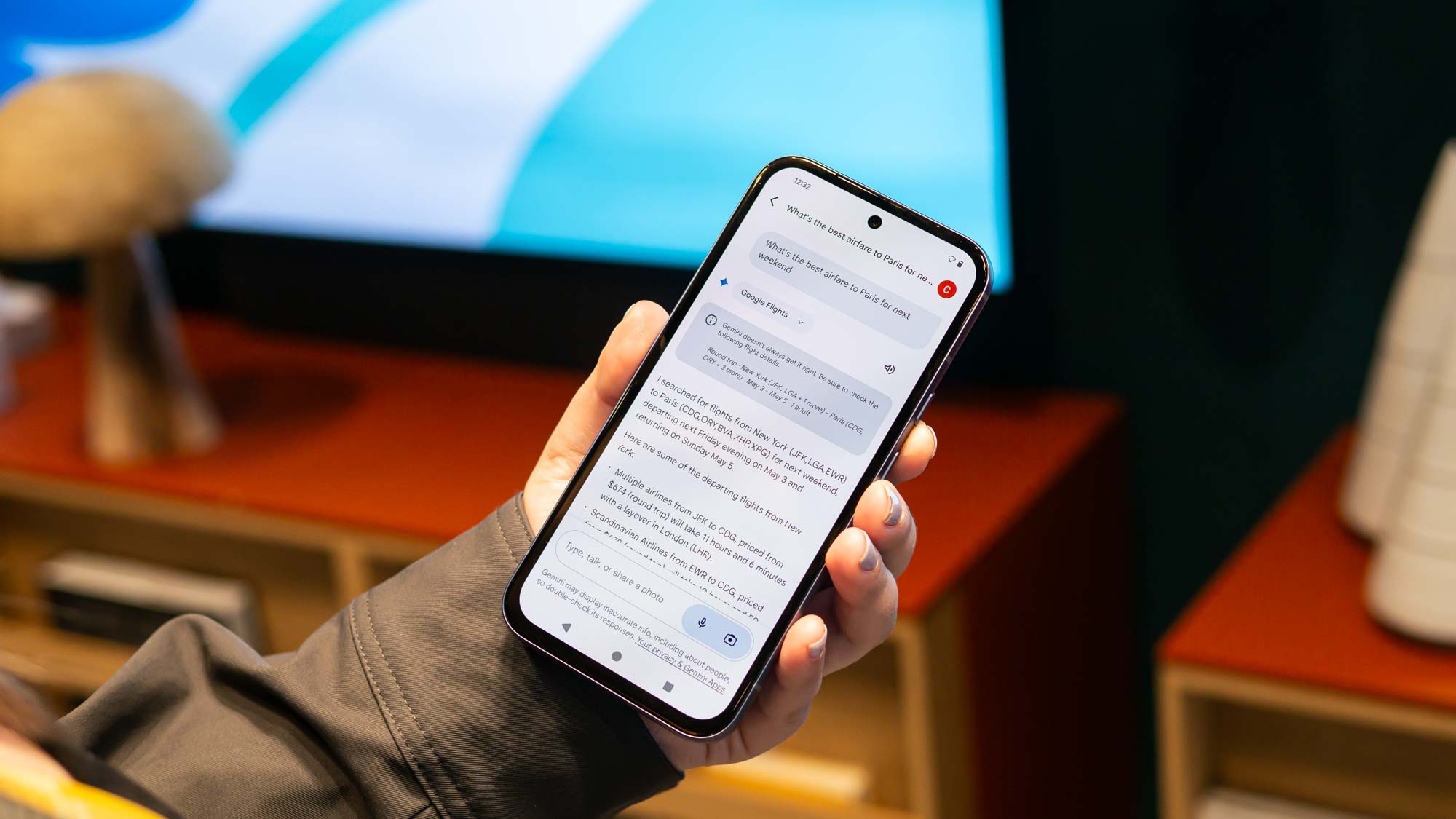
As previously noted, the Pixel 8a runs on a Tensor G3 system-on-chip, adopting the silicon Google introduced for the Pixel 8 lineup. That should mean a performance boost as the Tensor G3 outperforms the older Tensor G2 found in the Pixel 7 lineup, though it doesn't come close to challenging your Snapdragon 8 Gen 3-powered Android phones. That said, once we benchmark the Pixel 8a, we would expect it to top the Galaxy A35, since that Samsung phone uses the same Exynos 1380 that Tensor G2-powered Pixels handily out-performed.
The big story with the Tensor G3 chipset is how Google phone capitalize on its Tensor engine to support a number of AI capabilities. In addition to the photo editing features outlined above, the Pixel 8a supports live translation where you can have conversations with someone speaking another language translated on the fly. The improved Call Assist features are here, too, and you can use Circle to Search on the Pixel 8a if you want to quickly look something up without having to leave the app you're using.
AI features are a big selling point for the Pixel 8a — not just because these capabilities are all the rage in the smartphone world right now, but because Google's midrange phone offers them at a much lower price than Samsung's flagships.
The newer phones come with the much improved Tensor G4, which far exceeds the Tensor G3 in both single and multi-core scoring. However, it has to be said that the Pixel 8a does get more out of the Tensor G3 than the Pixel 8, meaning the gap isn't quite as big as between the Pixel 9 and the other mainline phones.
Google Pixel 8a: Battery life and charging
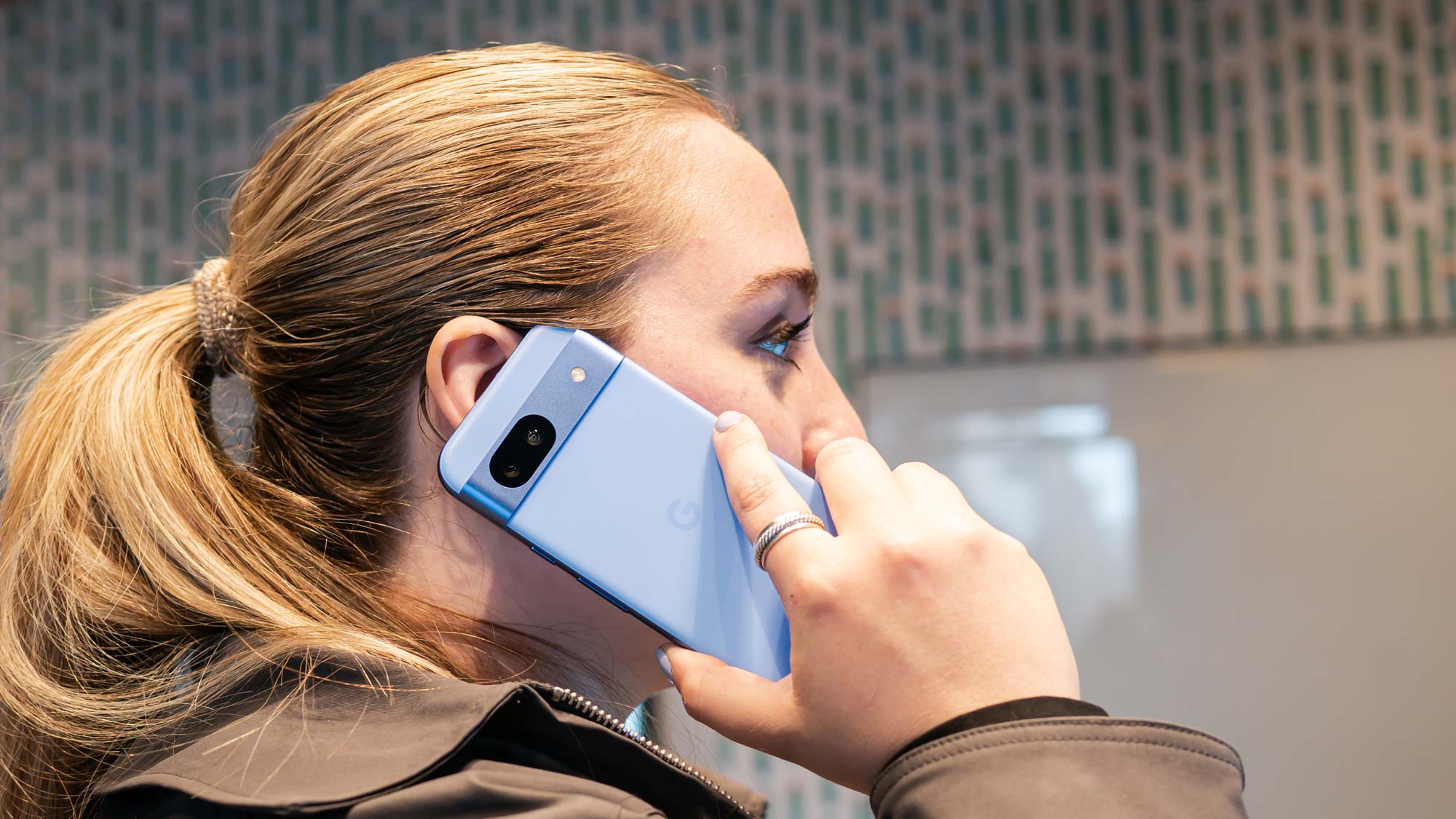
Battery size has increased from the Pixel 7a, with the Pixel 8a sporting a 4,404 mAh cell. (The Pixel 7a made do with a 4,386 mAh power pack.) Battery life hasn't been a hallmark of recent Google phones, but fortunately things are looking good with the 8a.
As you can see, the Pixel 8a lasted 11 hours and 21 minutes in our custom battery test compared to the Pixel 7a's 10 hours 5 minutes. So it seems like that more efficient Tensor chipset and the larger battery pack have been put to good use.
The Pixel 8a charges at 18W, the same as its predecessor, and the enlarged battery means it charges a little slower than the Pixel 7a. Gaining just 33% charge after 30 minutes, compared to the 7a's 43%.
Wireless charging remains a part of the feature package, but is limited to 7.5W speeds.
Google Pixel 8a: Software support
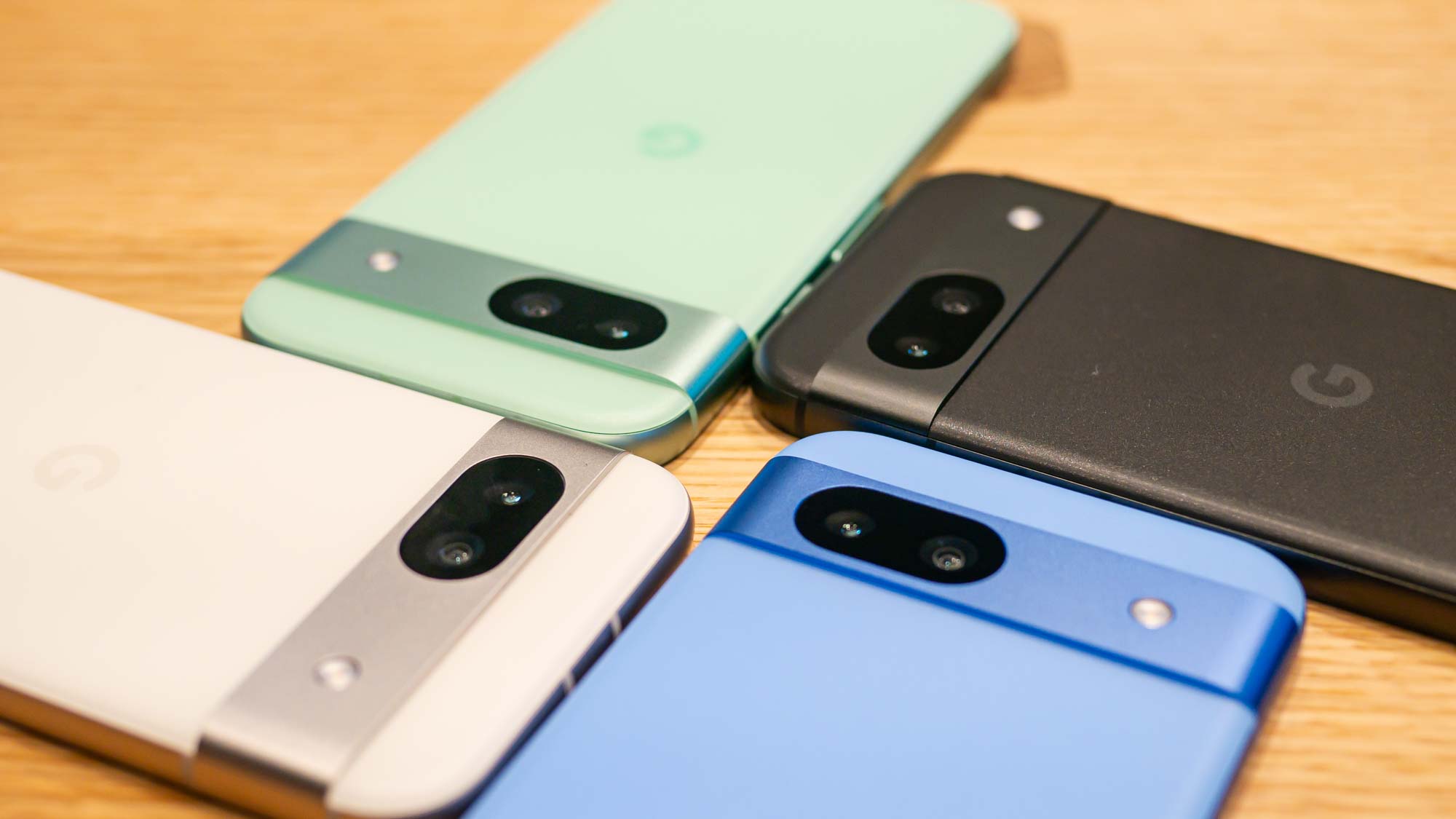
Apart from AI features, the biggest improvement to the Pixel 8a from its predecessor could be the amount of support Google brings to the phone. Like the Pixel 8 and Pixel 8 Pro, you can count on seven years of software and security updates for the Pixel 8a. Treat your phone right, and it could be the last one you buy this decade.
One big change coming for the Pixel 8a is obviously Android 15, which promises some interesting changes. So far, in the Beata, we've seen improved security features and new features like Private Space, which will be a vault for stashing sensitive apps. There's also the long-anticipated return of lock screen widgets, which has been often requested.
However, Android 15 is seeing a pretty major delay, with the expected release not happening until at least October. This means Pixel users will have to wait for a while to make use of some of the new features, including the removal of legacy PNG-centric emojis in favor of vector graphics and a host of security and bug fixes.
Google Pixel 8a outlook
You can read our Pixel 8a review for an in-depth look at our time with the phone. Needless to say, we were very impressed with what Google has on offer, especially at this price point. There may not be quite as many premium features like there are on Pixel 8 and Pixel 8 Pro, but you're still getting an extraordinary amount of value here.
We found that the camera performance could have been improved slightly, but the Pixel 8a does manage to make it up in a lot of other ways. A brighter screen, stronger battery life, and all the AI features you get on flagship Pixel phones. And, frankly, this is the kind of phone we'd be more than happy to spend our money on.
While Google has released a new phone, it has to be said that there is still a place in the market for the Pixel 8a. Well, at least until we hear about a Pixel 9a.







